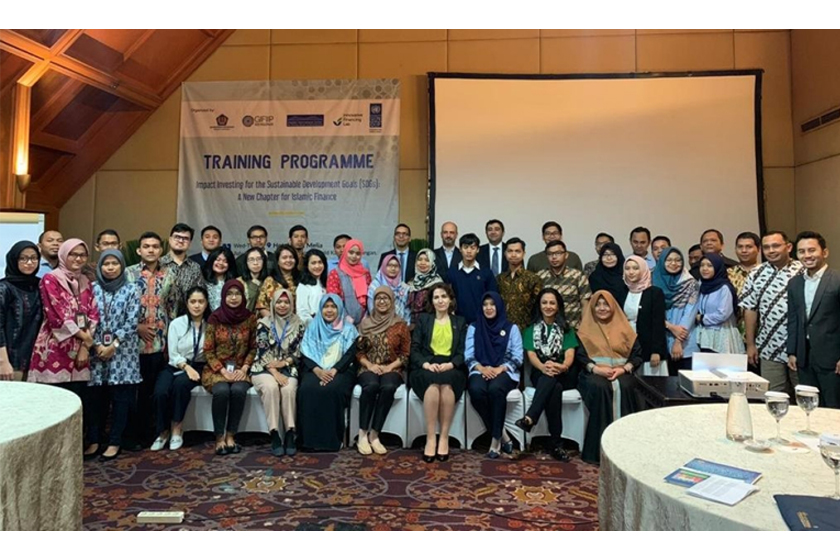
Blending Islamic Finance and Impact Investing to Achieve the SDGs
The second training on Islamic finance and impact investing takes place in Indonesia as part of Global Islamic Finance and Impact Investing Platform (GIFIIP).
Jakarta, Indonesia, July 12 2019 – The United Nations Development Program (UNDP) concluded the Second Islamic Finance and Impact Investing Training Program (IFIITP) which took place in Jakarta from 10-11 July 2019. The training was co organized, as part of Global Islamic Finance and Impact Investing Platform (GIFIIP), by UNDP’s Istanbul International Center for Private Sector Development (IICPSD), the Finance Sector Hub and the UNDP Country Office in Indonesia through its Innovative Finance Lab. The training was successful in bridging the gap between impact investing and Islamic finance, creating an alliance between the two as potential sources of finance for the Sustainable Development Goals. Attendees from government bodies, private sector, academic community and the Islamic finance ecosystem learned about how enterprises and investors can integrate impact investing in their decision making processes and apply Islamic finance resources to mobilize funds for positive impact.
Given its rapid growth and strong presence, Islamic finance (US$2.4 trillion market size), offers an effective channel to mobilize capital for SDG implementation. Impact investing, an investment method that considers social and environmental returns alongside a financial profit (US$502 billion market size), offers a good opportunity to blend Islamic finance resources for development cooperation, and together, they could become a vital source of sustainable funding towards the required US$7 trillion for SDG implementation.
The Training Program hosted 65 attendees from a wide range of actors operating in the public sector in Indonesia such as the Central Bank, Ministry of Finance and Financial Services Authority as well as key stakeholders from private sector such as Ernst and Young, Angel Investment Network Indonesia and Kapital Boost. The Program highlighted select issues in the impact investing and Islamic finance ecosystem such as the role of financiers and investors in development, impact measurement, mobilizing Islamic finance and managing the pipeline, Islamic financial instruments, and risk and opportunities in Islamic impact investing.
The training received a lot of positive feedback from participants, especially on its ability to convene a wide range of stakeholders while some institutions requested one by one consultation sessions from the trainers to discuss their institution specific cases in more detail. There was also clear support for including the regulatory and policy sides of the Islamic impact investing ecosystem. The IFIITP was part of a series of events preceding the Fourth Annual Islamic Finance Conference to be held by the Ministry of Finance of Indonesia on 24-25 July 2019. Last year, the IFIITP was well attended in Islamabad, Pakistan and participants included the Central Bank of Pakistan, Shariah scholars, Investment companies, Islamic Banks and academics.
UNDP also engages with Islamic financial Institutions to develop solutions for sustainable development. In this context, the Islamic Development Bank Group (IDB Group) and UNDP have formed a partnership to establish the Global Islamic Finance and Impact Investing Platform (GIFIIP). The overall goal of GIFIIP is to accelerate progress towards SDGs by positioning Islamic finance and impact investing as leading enablers of SDG implementation across the globe through engaging the private sector.
For further information on how Islamic finance can help fill the SDGs funding gap, please see https://www.undp.org/content/undp/en/home/partners/islamic-finance.html